- Home
- Anne Stuart
Seen and Not Heard Page 2
Seen and Not Heard Read online
Page 2
God, he hated this business. It was no wonder Marie was unhappy. He wouldn’t blame her if she started looking at other men. She was too young, too lively to be tied to a husband whose job was death.
He stood up, reaching for his battered raincoat. It was already after six. He’d be late again, and Marie would have already eaten. She wouldn’t say a word, but he would read the hurt and anger and disappointment in her fine brown eyes, and his guilt would eat into his soul.
But he had to stop by the rue Broca and Felice Champêtre’s apartment. Marie’s life didn’t depend on his getting home on time. Some other woman’s might.
Claire put the mug back in the cupboard, in a straight line with the other ceramic mugs. Marc didn’t like them, preferring the paper-thin Limoges tea cups he’d inherited. But she’d broken one, and the look he’d given her had been chilling.
Later she decided she’d imagined it. But she went out and bought herself a set of heavy, earthenware mugs, and never touched the Limoges again if she could help it.
Her thick, red gold hair was still damp from the shower. She should have finished drying it, but she was too restless to spend the time. She tugged at the fine wool of her dress, wiggled her toes in the silk stockings, and fiddled with a pearl earring. She would have liked to have greeted Marc in an old pair of jeans and a thick sweater on a cold, miserable night like this. Or maybe wearing a soft flannel nightgown, and she could have made hot chocolate for the three of them in front of the fire, and they could have been a real family.
But Marc had standards, and Claire had learned it was easier to conform to them. Particularly when he explained that he wanted her to dress well because she valued herself, not him. It made sense, and she did as he expected. But right now she would have loved something more comfortable.
The chicken was simmering, the air was redolent of tarragon and wine. At least she could cook. She hadn’t had to change that part of her nature, she thought with that uncomfortable trace of defiance. Indeed, she’d had so little to do during the last few months that she’d developed her modest talent into something approaching art. She would have liked to study further. Paris was the perfect place for learning haute cuisine. But the cooking schools weren’t bilingual, and French was the language, not only of love and ballet, but the language of food.
Through the endless corridors and rooms of the old apartment she heard the soft closing of the front door. Her ears had become very finely tuned. Living with a mime did wonders for your senses, she thought with a trace of humor. Marc used to be able to sneak up on her when she was completely unaware. She hadn’t liked it, hadn’t wanted to say anything and hurt his feelings. So she’d worked on listening. Marc hadn’t surprised her in months. No, that wasn’t true. He was always surprising her. But he hadn’t managed to sneak up on her in a long, long time.
She took off her apron, folded it neatly, and set it on the spotless kitchen table. Her narrow, delicate hands were trembling slightly, and she frowned at them. It must be the excitement. She’d been left alone for two nights, and ever since the accident she hadn’t liked to be alone. Now that Marc was back, and Nicole, things would be better. Things would be as they should be.
Smoothing her challis dress, she headed for the living room, setting a welcoming smile on her face. Only for a brief moment did she consider that she shouldn’t have to call forth a smile to greet her returning lover. It should have come on its own.
Once more she cursed her depression, her indecisiveness. She was going to throw away the best thing that ever happened to her if she didn’t shake herself out of it. Marc was home, and she loved him. Maybe it was time she made it clear just how much she did love him. Maybe it was time to get married. And maybe it was time for her to tell him so.
But then, she didn’t want to spoil Nicole’s homecoming, did she? It could wait. Wait until Marc asked her again. This time, she would say yes. And to hell with second thoughts.
CHAPTER 2
Rocco Guillère propped his feet on the battered table and eyed his pointy-toed black leather boots blearily. He would need a shine tomorrow. He liked having classy boots, with a real shine, not that plastic coating they had nowadays, and he spent a lot of money on them. He knew the places where you could still get a decent shine, and he tipped well.
He liked people’s reactions. He’d stride up to the stand in the lobby of the best hotels, all black leather and menace, and take his place with the gray-suited businessmen, propping his huge black boots beside their hand-sewn Italian leathers. The others would pull away, as if he gave off a bad smell.
Rocco grinned, lighting a stubby Gitane and drawing the acrid smoke into his lungs. Maybe he did give off a bad smell. He wasn’t one of the bourgeoisie, into hot baths and clean clothes. He lived in the roughest, nastiest part of Paris, and his life was rough and nasty. He had no time, no patience for the finer things in life.
It was just after midnight, the heart of the evening, and his work hadn’t even begun. He had to waste another hour until he was needed.
It was a simple job tonight, if he chose to make it so. He’d been hired as protection during a drug deal. He would simply stand in the background, glowering, his huge American Magnum prominently displayed, while Achilles and the little Spaniard traded lots of money for a decent amount of cocaine. He’d been told to stand guard while the Spaniard counted his money and left, and Achilles would pay him with part of the drugs.
It would be good pay for an easy night’s work. And if he could keep the stuff away from that greedy little tramp Giselle he could make a nice profit.
But there was another alternative, one he’d used occasionally. He could waste both Achilles and the Spaniard, take all the drugs and the money, and no one would be the wiser.
He didn’t do that sort of thing very often. Word would get around, and his reputation would suffer. He’d had to be very careful since that fool Malgreave had arrested him. It had been a close call. Two months in that stinking prison, two months while Malgreave went his slow, deliberate way, trying to pin those murders on him.
In the end he’d failed, of course. Thirty-five old women had died at that point. And Rocco had only killed seventeen of them.
He stubbed the cigarette out, shifting in the chair and tilting it back further. It was a good thing he’d been so far ahead of the others. They’d had time to catch up during his enforced retirement. Four more women had died since he’d been arrested, and he hadn’t touched one of them. By now Malgreave had to have given up on him.
He scratched his groin absently. It should be safe by now. Or safe enough. And he was badly short of cash. He’d take care of Achilles and the Spaniard, and then, when a little time had passed, he’d find an old lady. A sweet old grandmother, living alone. And the very next rainstorm he’d start taking care of his quota. After all, he couldn’t let a bunch of amateurs get ahead of him.
He smiled, his shark’s smile. It would be a pleasure to set Malgreave to wondering.
It was happening again. The cold, black, rain-slick night. Brian driving his BMW far too fast, his handsome mouth set, his beautiful hands clenching the leather-covered steering wheel as if he wished it were her neck. He wasn’t yelling, he was saying quiet, bitter, cruel things. She was the one who was yelling.
He’d promised, how many times had he promised? He would talk to his wife, the separation and divorce would be amicable, and they could finally get married. It had been eighteen months of promises, and Claire had had enough. So, apparently, had Brian.
There would be no separation, he had finally admitted. Not right now. His wife was pregnant again, and it probably was his.
That was when she’d starting yelling. And that was when he’d taken his eyes off the road, his hand off the wheel and lashed out at her, his formidable temper breaking its tenuous control.
She could still hear the sickening thump of a body smacking against the car. She could still see the child’s limp, rain-soaked form lying beside the road. She could s
till see Brian’s panic as he drove away, ignoring her screams, ignoring her futile attempts to grab the wheel. He’d finally hit her, hard enough to stun her, so that she sank back, huddled in a corner of the leather seat, watching with numb, disbelieving eyes as he sped through the night, away from the child.
Claire lay in the wide bed, covered in a cold, clammy sweat. She hated waking up in the middle of the night, hated lying there, remembering, with Marc asleep beside her, his sensual face childlike in repose. She reached out to wake him up, to touch his firm, muscled shoulder, then drew her hand back. Marc would have one response to her wakefulness, to her fears. And for once in her life Claire didn’t feel like being made love to.
An odd way to put it, she thought to herself, inching her body over a bit, away from Marc. He was always so warm, his firm, lithe body radiating heat like a furnace. Even in the coldest weather they didn’t need more than a thin blanket, and in the heat of the summer it would be almost unbearable. Right now Claire would have given anything for a cooling breeze. The rain had stopped, but the sounds of Paris at night reached the second-floor windows, muffled noises, reminding her that people had lives beyond the walls of this apartment that were rapidly resembling a prison.
She looked over at Marc. There hadn’t been much time for talk. First there had been Nicole, horribly sick with some stomach virus. Claire had spent two hours holding her head over the toilet and mopping her brow. In her misery Nicole couldn’t summon even the rudiments of English, and Claire had cursed her lack of French for the hundredth time. By the time the retching had ceased and Nicole had fallen into an exhausted sleep, all Claire wanted to do was the same.
“Chérie, you look dreadful,” Marc murmured, his voice low and soothing as he led her toward the bathroom. “You take your shower first and I’ll join you in bed. What a hell of a homecoming, eh?”
For once in her life Claire wanted to protest. She didn’t want to take the shower Marc always insisted upon, she didn’t want to wait for him in bed, and she didn’t want to make love. But she said nothing. The few occasions she’d told Marc no, he’d refused to listen. And within minutes he’d had her begging him, helpless in the response he could always bring forth. He was a very adept man, almost frighteningly so.
She looked over at him. How could she be frightened of him? He was the kindest, sexiest man. And how patient he was with Nicole, and what little he got in return. He’d gone to get her simply because her grandmother had finally returned from Los Angeles, the grandmother Nicole adored above all people. Nicole could stay here for the next few weeks, while Marc went on tour with the Théâtre du Mime, and his three ladies, as he termed them, could keep each other company.
She was looking forward to meeting Mme. Langlois. She was both anticipating and dreading the next month. She looked on it as some sort of test. If she could survive, even thrive, in Marc’s house, Marc’s life, without Marc there to cloud her thinking, then there might be a future for them. She would have time to think things through, to make up her mind. And when he finally returned she could greet him with all her doubts resolved. Or she could be gone.
That alternative was looking oddly attractive. But she couldn’t leave Nicole. Not until she was sure that Mme. Langlois would be enough buffer against Marc’s exacting nature. He was a good father, a loving father. He was just a tiny bit … cold, at times. And Claire couldn’t rid herself of the feeling that Nicole knew it.
She slid down further on the soft bed, sighing. She’d forgotten to pick up the sheets at the laundry yesterday. No, she hadn’t forgotten—she hadn’t wanted to. For one thing, the rain had been so depressing she hadn’t wanted to go out in it. For another, no one at the laundry spoke English, and each visit was a nightmare of humiliation.
But Marc expected fresh sheets daily, and she had made up the bed this morning with the last set. Rain or no rain, she would have to go out tomorrow. Humiliation or no, she would have to face M. Gorgogne. Perhaps Nicole could come with her and translate.
She shifted uneasily. The bed was too soft and too small, and the heavy damask hangings made her feel claustrophobic. While he was gone she could see about bringing in a queen-size bed, one with a good hard mattress, plenty of pillows, and plenty of room. If she was going to make the decision to stay, she would have to do so on at least some of her own terms. If Marc couldn’t accept that, then there was no future for them, and she could go back to Massachusetts and face what she’d been running from so desperately.
“Chérie,” Marc murmured, reaching out for her, his strong, delicate-looking hand clasping her wrist. Like a handcuff, she thought for a brief, disloyal moment. His skin was hot, almost feverish against her cold, clammy flesh, and his eyes glittered in the darkness. “Claire,” he murmured, his mouth moving over her collarbone, his voice soft and loving, as other, incomprehensible words tumbled from his mouth against her sensitive skin. And she put out her other wrist, accepting his imprisoning hand, accepting his imprisoning body, shutting out the night and the memories, leaving only pleasure in the stuffy bedroom.
Thomas Jefferson Parkhurst was in the midst of a creative frenzy. His long, deft fingers were flying over the ancient manual typewriter, he no longer shuddered every time he drained his wine glass, and the late-night traffic from the rain-wet Paris streets made an agreeable rumble. It would have been especially nice, he thought, leaning back and running a hand through his shaggy brown hair, if he could have worked by candlelight. But he had trouble seeing the ink-blotched print as it was, and candlelight would make it impossible.
And it would have been nice if some ripe young mademoiselle were lying in bed waiting for him to finish his night’s work. Someone who would pout prettily, come up behind him and press her bare breasts against his back, someone who would lead him back to bed when his chapter was done.
But the bed was empty, and had been since Susan had left him and gone back to her yuppie life in Marin County. Somehow he hadn’t been in the mood for transients. He’d thrown all his energy into the book, working on it endlessly, until his neck was cramped and his long, lean body grew stiff and weary.
He was a tall man, and for a while he’d tried Thomas Wolfe’s trick of standing up and writing on the top of the refrigerator. But he always kept crackers and dishes up there, and he hated having to clear them off, and it was hard to see the paper when he perched the typewriter up there. Wolfe had written longhand, but Parkhurst knew that no one, himself included, could read his handwriting. Besides, the man at the pawnshop assured him this typewriter had once belonged to Hemingway himself. Maybe some of that creative aura still lingered.
God knows, he needed all the help he could get. He was running out of time. Two more months, and then he’d have to go back. He’d made a promise to himself, and he couldn’t break it. He had two years to find himself, find his art. After twenty-two months he still hadn’t gotten it right.
He pushed back from the rickety table, stretching his long arms out over his head, and surveyed his apartment with regret and nostalgia. It was the perfect artist’s garret, from the crescent windows overlooking the city, the six flights of stairs that left even a marathon runner winded, the nooks and crannies and clear, bright daylight from the skylights. During his painting phase its ambiance had almost fooled him into thinking he had talent. During his play-writing stage it had helped him write bohemian tragedies. It had provided him with enough space to practice when he thought he might be a dancer, it had provided him unnervingly good acoustics during his very brief stint with the clarinet. Now, during the great new expatriate novel stage, it made him feel like a wonderful cross between Hemingway and Gene Kelly.
He pulled the finished page out of the typewriter and lay it face down on the table. He never read what he wrote, never revised. First things first, he told himself. He’d write the damned thing straight through, then sit down and read it. And if it had no value at all he’d burn it, book the next flight for New York, and go back and face life.
Susan woul
d have him back. As long as he’d gotten over this artistic nonsense and went back to work she’d be more than willing to share his life. But somehow Thomas Jefferson Parkhurst wasn’t sure it was going to be the same life. Even if the novel didn’t work out, even if he did have to go back to the brokerage house, the last twenty-two months had changed him. Thank God.
He drained the last of the wine, then grimaced at the label. Park-Millet Vineyards. His first venture into modified creativity, buying an ancient vineyard in a barren, sparsely populated area in the northeast of France, had been a resounding failure. The wine was undrinkable, the vineyard unsalable. At least he could use the tax write-off.
His bed was an ancient iron affair, halfway between a twin and a double, with a sagging mattress, aging springs, and not enough pillows. It protested audibly as Parkhurst threw himself down on it. For a moment he remembered the noise it made when Susan had shared it, remembered with a brief, salacious grin. And then he dismissed the thought, rolling over on his back and turning off the low-wattage bedside light.
It was raining again, raining hard on the metal roof just over his head. He used to like the steady drone of rain. Now it just made him depressed and restless.
He’d chosen Paris for his sabbatical because he’d always loved it. The clear, beautiful light that was now, too often, obscured by smog, the magnificence of the architecture, the self-possessed friendliness of the people. He always thought the French were like cats—charming on their own terms but not on anyone else’s.
But the French had begun to lose their charm. For some reason the Grandmother Murders particularly depressed him. He’d imagined copycat killers were the province of places like L.A. and New York, not his beloved City of Lights.
Another old lady killed today, not three blocks away. He might have seen her in that park where the old ones hang out, he might even have seen her killer. Punching the inadequate pillow, he rolled over, searching for the one comfortable spot in the concave mattress. They were always killed on rainy days, and Paris was breaking records for rainfall this year. He didn’t want to watch the death count rise. Maybe he’d stop buying the papers.

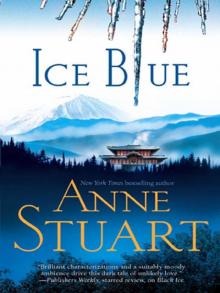 Ice Blue
Ice Blue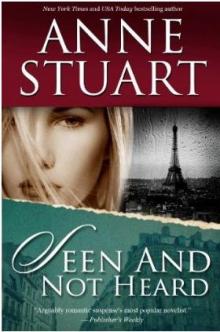 Seen and Not Heard
Seen and Not Heard Never Marry a Viscount
Never Marry a Viscount Heartless
Heartless The Devil's Waltz
The Devil's Waltz Hidden Honor
Hidden Honor Silver Falls
Silver Falls Fire and Ice
Fire and Ice Nightfall
Nightfall Never Trust a Pirate
Never Trust a Pirate The Soldier and the Baby
The Soldier and the Baby Still Lake
Still Lake Reckless
Reckless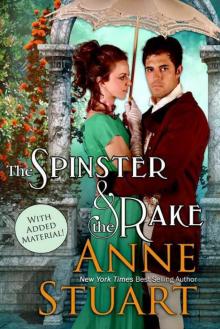 The Spinster and the Rake
The Spinster and the Rake Winter's Edge
Winter's Edge At the Edge of the Sun
At the Edge of the Sun Into the Fire
Into the Fire Night of the Phantom
Night of the Phantom Ritual Sins
Ritual Sins Darkness Before the Dawn
Darkness Before the Dawn Against the Wind
Against the Wind Ruthless
Ruthless The Catspaw Collection
The Catspaw Collection Escape Out of Darkness
Escape Out of Darkness The Widow
The Widow Shameless
Shameless Black Ice
Black Ice Breathless
Breathless Shadows at Sunset
Shadows at Sunset Falling Angel
Falling Angel Housebound
Housebound Cold as Ice
Cold as Ice The Wicked House of Rohan
The Wicked House of Rohan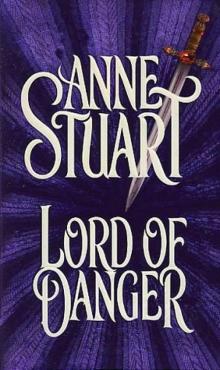 Lord of Danger
Lord of Danger The High Sheriff of Huntingdon
The High Sheriff of Huntingdon Wildfire
Wildfire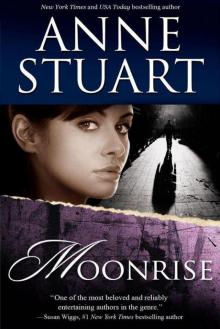 Moonrise
Moonrise The Demon Count's Daughter
The Demon Count's Daughter Date With a Devil
Date With a Devil To Love a Dark Lord
To Love a Dark Lord Driven by Fire
Driven by Fire Special Gifts
Special Gifts Ice Storm
Ice Storm Shadow Lover
Shadow Lover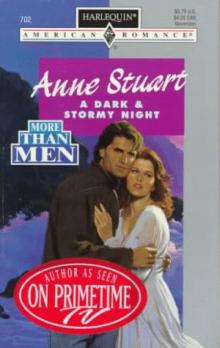 A Dark & Stormy Night
A Dark & Stormy Night Now You See Him...
Now You See Him... Lady Fortune
Lady Fortune Glass Houses
Glass Houses A Rose at Midnight
A Rose at Midnight Prince of Swords
Prince of Swords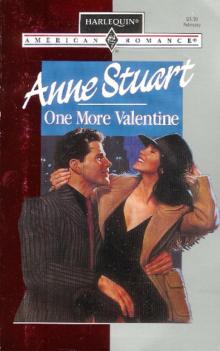 One More Valentine
One More Valentine Return to Christmas
Return to Christmas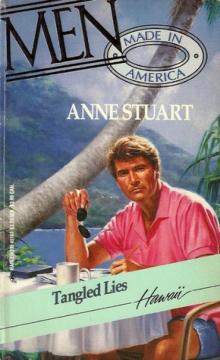 Tangled Lies
Tangled Lies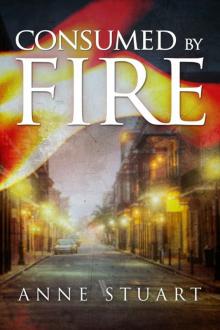 Consumed by Fire
Consumed by Fire The Fall of Maggie Brown
The Fall of Maggie Brown Wild Thing
Wild Thing Crazy Like a Fox
Crazy Like a Fox The Demon Count
The Demon Count Prince of Magic
Prince of Magic Wildfire (The Fire Series Book 3)
Wildfire (The Fire Series Book 3)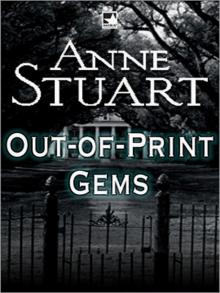 Anne Stuart's Out-of-Print Gems
Anne Stuart's Out-of-Print Gems Shadow Dance
Shadow Dance Under an Enchantment: A Novella
Under an Enchantment: A Novella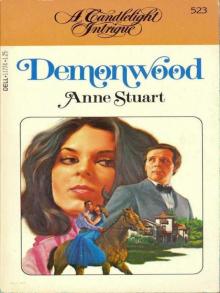 Demonwood
Demonwood Blue Sage (Anne Stuart's Greatest Hits Book 3)
Blue Sage (Anne Stuart's Greatest Hits Book 3) Barrett's Hill
Barrett's Hill Angel's Wings (Anne Stuart's Bad Boys Book 5)
Angel's Wings (Anne Stuart's Bad Boys Book 5) Darkness Before Dawn
Darkness Before Dawn The Right Man
The Right Man The Houseparty
The Houseparty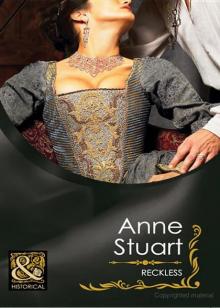 Reckless_Mills & Boon Historical
Reckless_Mills & Boon Historical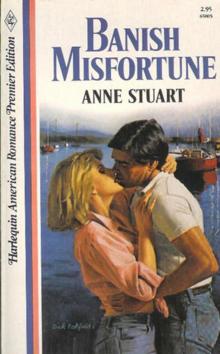 Banish Misfortune
Banish Misfortune Angel's Wings
Angel's Wings Chain of Love
Chain of Love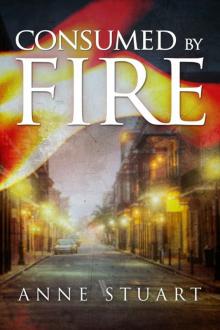 Consumed by Fire (The Fire Series)
Consumed by Fire (The Fire Series) Partners in Crime (Anne Stuart's Bad Boys Book 4)
Partners in Crime (Anne Stuart's Bad Boys Book 4) The Soldier, The Nun and The Baby (Anne Stuart's Greatest Hits Book 2)
The Soldier, The Nun and The Baby (Anne Stuart's Greatest Hits Book 2)